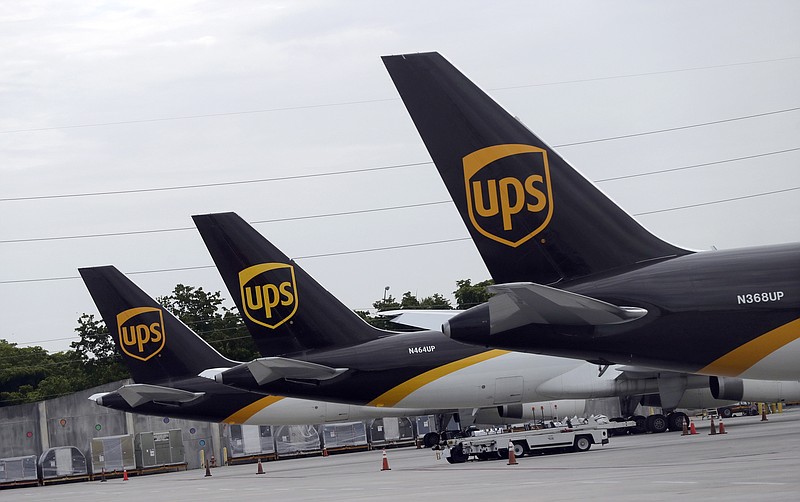UPS is ordering 10 electric aircraft that are designed to take off and land like a helicopter, allowing it to fly cargo directly between its facilities in small markets and bypass airports.
The electric Vertical Takeoff and Landing (eVTOL) aircraft made by Beta Technologies would be flown by an onboard pilot when UPS begins getting them in 2024, pending Federal Aviation Administration certification. Burlington, Vermont-based Beta Technologies is conducting flight testing on the aircraft at a test facility in Plattsburgh, New York.
But the aircraft are designed to "someday operate autonomously" once the technology and regulations are developed, according to Sandy Springs, Georgia-based UPS, which did not disclose the purchase price.
UPS has an option to purchase an additional 140 aircraft. It plans "to take delivery and see how they perform within the network, and then move from there," said UPS spokesman Matthew O'Connor.
After years of testing drone delivery technologies, UPS in 2019 got Federal Aviation Administration approval for a drone airline called UPS Flight Forward and has partnered with CVS for prescription drone deliveries. In recent years, UPS has also tested self-driving tractor-trailers and vans, ordered 10,000 electric delivery trucks and worked to develop electric vehicles capable of automated movement in UPS depots.
The eVTOL aircraft would be used to supplement cargo shipments in UPS's small feeder air network, currently served by contract operators that use Beechcraft and Cessna 208 Caravan planes to fly cargo between small and medium-sized markets.
But since the eVTOL aircraft would be able to take off and land at UPS facilities, the company would save the time and labor for loading and transferring at airports between planes and trucks that drive the packages to UPS facilities. That could speed urgent shipments such as pharmaceuticals and documents.
"By utilizing vertical takeoffs and landings, we can turn relatively small spaces at existing UPS facilities into a micro air feeder network without the noise or operating emissions of traditional aircraft," Beta founder and CEO Kyle Clark said in a written statement.
The Beta Technologies eVTOL aircraft are designed to have a range of 250 miles on a single charge, and be able to charge in an hour or less at charging stations that could also be used for electric ground vehicles. They would have a cruising speed of up to 150 miles per hour, and produce zero emissions while operating.
